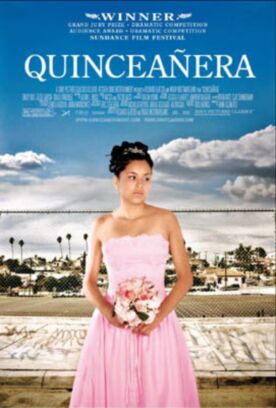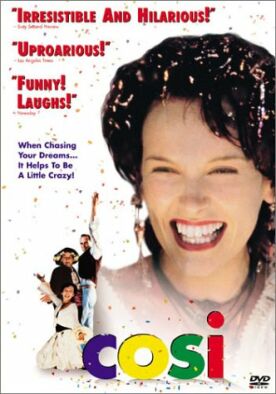Bend It Like Beckham
It so happens that in the same week that Bend It Like Beckham is opening in the United States, the British police have announced a new initiative against so-called “honor-killings” in the Asian community in Britain. According to the Daily Telegraph, “Officers in east London are considering honour killing as a motive for the murder last month of Anita Gindha, 22, who was heavily pregnant. Mrs Gindha, who was born a Sikh but renounced her religion, was strangled in front of her 18-month-old son.”
The police said that Mrs Ginda had refused a marriage arranged by her family in Glasgow and fled to London, where she married her boyfriend. As she had herself admitted her killer to her house in London and “an older Asian man” had been seen nearby, it was feared that a relative had killed her for bringing disgrace on the family — an event which is, sadly, not uncommon in Britain’s extensive Asian community.
You would never know that from Bend It Like Beckham, a charming, heart-warming tale by the Anglo-Indian Gurinder Chadha. (What’s Cooking? Bhaji on the Beach) — though remembering the unhappy fate of Mrs Ginda might cause you to find the film just a little too heart-warming, and a little too simplistic in its portrayal of the (altogether benign) breaking down of the barriers of race and language and social custom.
Let us stipulate that those barriers ought to be broken down, and that the quaint social customs of the Indian sub-continent according to which it is thought immodest and unfeminine for girls to play soccer at all and especially in front of a mixed audience — that this almost superstition ought certainly to be abolished, along with dowries and bride-prices and arranged marriages and female subservience of all kinds. Yet even if these things are desirable, are they to be accomplished as a kind of sitcom-plot, in which a doe-eyed daughter melts the prejudices of her gruff but good-hearted daddy simply by pouting — just like any middle-class Anglo girl?
Jess Bhamra (Parminder K. Nagra) is 17, one of two daughters of a Sikh family living near Heathrow airport, where her father (Anupam Kher) works for customs and immigration. The significance of his working as one of the gate-keepers of his adopted country is echoed in Jess’s enthusiasm for its national soccer team and especially her hero, David Beckham, its star player. She dreams of playing for England herself, though both her family’s ideas of feminine modesty and her own self-consciousness about her legs, which have been scarred by a childhood burn, prevent her from taking her talent farther than impromptu games in the park with her “mates.”
One day, however, she is spotted by “Jools” Paxton (Keira Knightley), a girl of her own age who plays for the Hounslow Harriers, a local girls’ team. They become friends and Jools asks Jess to join the team. Though she is forced to sneak out, with the excuse that she has a part-time job, in order to play, Jess soon becomes the star of the team. Both she and Jools develop a massive crush on their coach, Joe (Jonathan Rhys- Meyers), which threatens their friendship, and when her parents find out how she is spending her Saturdays, her football career appears to be over.
Will her father relent and allow her to play in the big game — which also happens to take place on the same day as her older sister’s traditional Indian wedding? Will her family allow her to take up a soccer scholarship to a university in California? Will her father strangle her for kissing Joe in public? What do you think?
Still, putting plausibility aside, as one-big-happy-human-family flicks go, this is one of the better ones, and Juliet Stevenson’s performance as Jools’s bewildered but determinedly liberal mother is alone worth the price of admission. If we must have propaganda, let it always be done with as light a touch as this.
Discover more from James Bowman
Subscribe to get the latest posts to your email.







